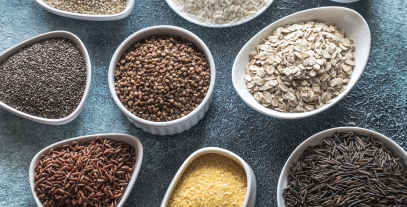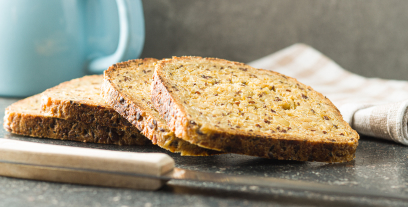 Gluten, one of the frequently heard terms in the recent days, has started to be used more especially by people who attach particular importance to healthy eating. It is also partially related to health. Gluten, which should be avoided by celiac patients and people suffering from food intolerance, has started to be removed from the diet by people with no health problems as well. Because it is claimed that people who who do not consume gluten are claimed to be healthier and fitter.
Gluten, one of the frequently heard terms in the recent days, has started to be used more especially by people who attach particular importance to healthy eating. It is also partially related to health. Gluten, which should be avoided by celiac patients and people suffering from food intolerance, has started to be removed from the diet by people with no health problems as well. Because it is claimed that people who who do not consume gluten are claimed to be healthier and fitter.
 In fact, it would be better to enter the subject with the answer to what gluten is. Gluten, a vegetable protein found in grains such as wheat, rye and barley, is a component that serves as a kind of binder and makes the products, which it is mixed into, more viscous and elastic. Found in bread, bulgur, pasta, semolina and all kinds of pastries, gluten is also contained in cosmetic products, glue, toothpaste etc.
In fact, it would be better to enter the subject with the answer to what gluten is. Gluten, a vegetable protein found in grains such as wheat, rye and barley, is a component that serves as a kind of binder and makes the products, which it is mixed into, more viscous and elastic. Found in bread, bulgur, pasta, semolina and all kinds of pastries, gluten is also contained in cosmetic products, glue, toothpaste etc.
 This component with binding and thickening properties has brought up gluten-free diet since gluten leads to health problems in some people. With great awareness towards gluten-free diet, gluten can also be removed from the diet of those with no gluten intolerance. So, are foods with gluten really harmful to health? What is gluten-free diet? And should everyone follow a gluten-free diet? Let's understand in detail.
This component with binding and thickening properties has brought up gluten-free diet since gluten leads to health problems in some people. With great awareness towards gluten-free diet, gluten can also be removed from the diet of those with no gluten intolerance. So, are foods with gluten really harmful to health? What is gluten-free diet? And should everyone follow a gluten-free diet? Let's understand in detail.
 What is a Gluten Free Diet?
What is a Gluten Free Diet?
Gluten, a protein found in grains, causes digestive sensitivity in some people. This makes people to follow a diet consisting of gluten-free foods. People with gluten intolerance and those who consume gluten but are not aware of the intolerance may suffer from abdominal pain, certain digestive problems and joint pain. In such a case, diet needs to be restricted so as to include gluten-free foods.
 Who Needs To Follow a Gluten-Free Diet?
Who Needs To Follow a Gluten-Free Diet?
If aforementioned complaints develop following consumption of grains such as barley, wheat and rye, then it is required to get medical advice and the necessary tests done.
*Celiac patients are one of those who should follow a gluten-free diet. So, there comes the question of what celiac disease is. Celiac disease is an inflammatory, autoimmune disease due to genetic and environmental factors. Celiac is actually a disease of the small intestine and develops in people following a diet consisting of gluten-containing foods in case of gluten intolerance.
 *People with wheat allergy may also need to follow a gluten-free diet. People with such intolerance may suffer from symptoms such as nausea and difficulty in breathing following consumption of wheat.
*People with wheat allergy may also need to follow a gluten-free diet. People with such intolerance may suffer from symptoms such as nausea and difficulty in breathing following consumption of wheat.
*Some people may experience gluten intolerance even if they do not suffer from celiac disease or wheat allergy. People who suffer from headache, fatigue, and joint pain etc. following gluten consumption should follow a gluten-free diet.
 How Should a Gluten-Free Diet Be?
How Should a Gluten-Free Diet Be?
If you are gluten intolerant, then you should start by removing all the foods, which contain grains such as wheat, barley and rye, from your diet. We highlighted that this diet is also followed by people with no gluten intolerance. In fact, the aisles where gluten-free foods are exhibited in some of the convenience stores and restaurants and the menus consisting of gluten-free dishes in some of the restaurants also attract a great deal of attention. Even contact of foods consumed by people with severe gluten intolerance with gluten-containing foods may result in discomfort.
Recommended For You
The Best Local Flavors of Anta...
Known as the jewel of the Medi...
Read MoreThe Most Popular Local Dishes ...
Gaziantep is known as one of T...
Read MoreQuick and Tasty: Open-Faced Br...
After a long, busy day, your t...
Read More